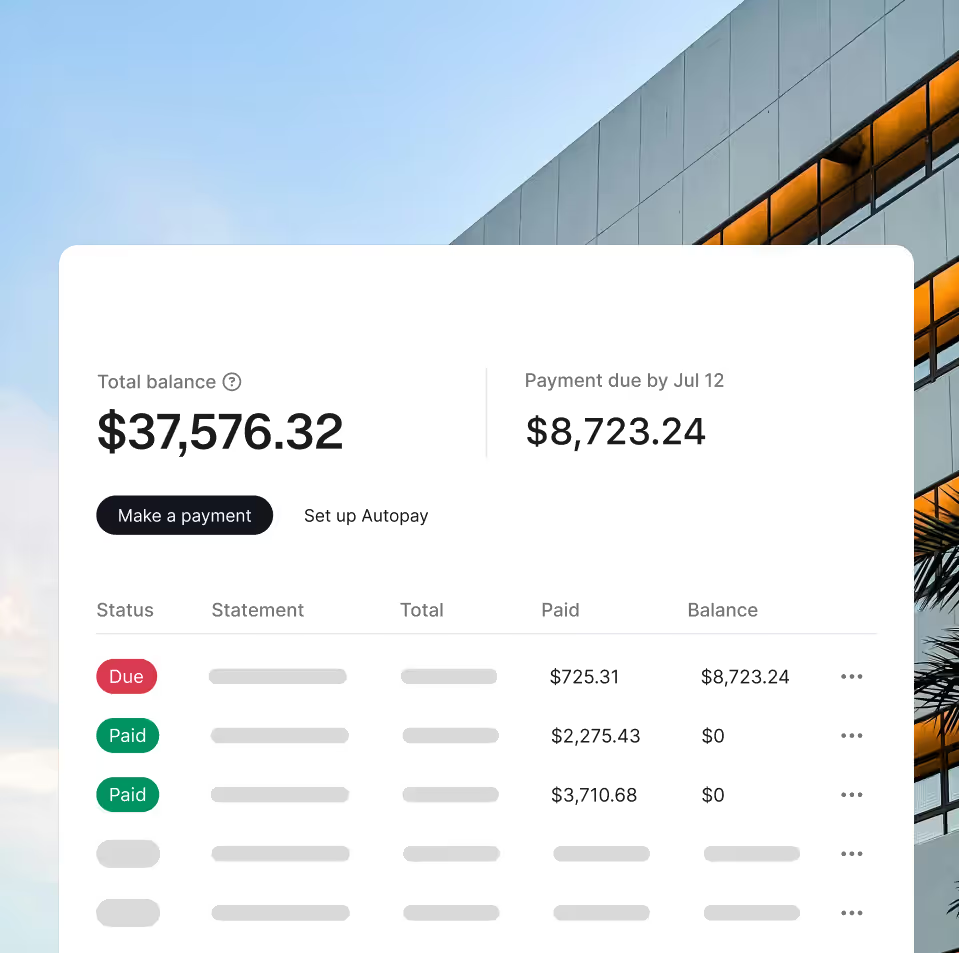What Employers Should Know About Per Diem and Employee Rights

Stop fussing with laws and logistics involving your business travel, let Engine help.
Get clear on what per diem must cover, when it’s taxable, and the documentation employees can expect. Engine centralizes corporate travel with negotiated hotel rates, Direct Bill, and audit-ready reporting to keep policies compliant and costs controlled.
Know what counts as per diem, when it becomes taxable, and what employers must cover. Use this quick overview to set a clean policy and keep crews out of pocket.
Per diem gets messy fast when projects shift and receipts pile up. This page summarizes federal rules, GSA benchmarks, taxable versus non-taxable treatment, documentation, and policy language you can adopt today. If you manage field teams, Engine can remove personal card spend, centralize billing, and track costs by project code so reimbursements stay compliant and audit-ready.


Per Diem Employee Rights: Your 2025 Guide
Your crew needs hotels near the job site, not a headache tracking receipts. Here's what actually matters about per diem in 2025.
Most per diem guides drown you in legal jargon and theoretical scenarios. This one focuses on what operations managers, project managers, and finance teams actually need to know when their crews hit the road.
Bottom line up front: You're not legally required to pay per diem, but you must reimburse travel expenses somehow. Get it wrong and you'll face overtime violations or minimum wage issues. Get it right and your crew stays focused on the work, not expense reports.

When Your Crew Actually Gets Per Diem
No federal law requires per diem payments. The Fair Labor Standards Act and Department of Labor stay silent on this one.
But here's the catch: you still have to reimburse travel expenses. Skip reimbursements entirely and you risk pushing worker pay below minimum wage or triggering overtime violations. That lands you in legal trouble fast.
Most companies choose per diem because it's simple and keeps crews happy. Set a daily rate, hand over the money, done. No receipt chasing, no approval delays, no administrative headaches. Platforms like Engine handle the booking complexity so you can focus on the actual work.
Why Operations Teams Choose Per Diem
Two reasons: it's straightforward and it works.
The General Services Administration (GSA) sets standard rates each year for federal employees. The IRS considers these rates non-taxable income thresholds. Private companies adopt these rates because they're defensible, predictable, and eliminate tax complications.
Your crew gets money upfront. Finance gets clean accounting. Operations gets crews focused on work instead of expense tracking.

How Much Per Diem Costs in 2025
Big changes this year. The GSA bumped rates significantly:
- Standard CONUS rate: $178/day ($110 lodging, $68 meals & incidentals)
- Up from 2024's $166/day ($107 lodging, $59 meals & incidentals)
That's a $12 per day increase—the biggest jump in years.
Location still drives costs. Los Angeles runs $277/day ($191 lodging, $86 meals). Rural Nebraska sits at $202/day ($122 lodging, $80 meals). Your crews working urban projects will cost more. Use the GSA's lookup tool to find rates for specific locations.
Mileage rates also increased:
- Business driving: $0.70/mile (up from $0.67 in 2024)
- Medical/moving: $0.21/mile (unchanged)
For a 500-mile round trip, that's $350 in mileage reimbursement. Official GSA mileage rates are updated annually.
Four Per Diem Approaches That Actually Work
Fixed Rate
Pay crews a set daily amount covering everything—lodging, meals, travel costs. Simple for everyone involved.
Best for: Typical domestic projects where costs are predictable. Crews get flexibility to balance hotel quality against meal preferences.
Partial Coverage
Cover specific categories like meals ($68/day) while crews handle incidentals separately.
Best for: Single-day trips or when crews stay with family. Reduces your upfront costs while still supporting your people.
Actual Expenses
Crews pay out-of-pocket, collect receipts, get reimbursed after.
Best for: International projects or high-stakes client meetings where costs vary wildly. Gives flexibility but creates administrative work.
Company Credit Cards
Pre-loaded cards for the entire trip. Finance gets oversight, crews avoid personal expense hassles. Engine's direct billing eliminates multiple credit cards entirely - one invoice covers all crew travel.

Best for: Larger companies needing tight expense control. Cards show exactly where money goes and simplify reporting.
What Per Diem Actually Covers
Meals
The 2025 standard covers $68/day for meals and incidentals across most locations. Crews control how they spend it - cheap breakfast and expensive dinner, or consistent mid-range meals throughout the day.
Lodging
Most per diem goes toward hotels. The 2025 standard covers $110/day for most areas. Day trips skip lodging entirely.
Incidental Expenses
The small stuff that adds up:
- Laundry and dry cleaning
- Tips for servers and hotel staff
- Cab and shuttle fares
- ATM fees
- Valet services
- Tolls
Each company sets its own incidental policies. Define what you'll approve upfront to avoid disputes later.
Travel Costs
Airfare: Most policies require economy class booked 14+ days in advance. Upgrades come out of pocket unless business-critical.
Driving: Current rate hits $0.70/mile. A 500-mile round trip costs $350. This replaces gas reimbursements - use one or the other, not both.
What Per Diem Doesn't Cover
Keep it simple. These stay out-of-pocket:
- Alcohol (deduct from receipts)
- Entertainment
- Souvenirs
- Room service
- First-class flights
- Anything over the daily rate
Private companies can set different policies, but most stick to business essentials only.
The Tax Reality for 2025
Per diem isn't taxable if crews stay within GSA rates and file proper expense reports. This follows IRS guidelines for per diem payments.
Here's what Finance needs to know:
Non-Taxable Requirements
- Stay at or under GSA daily rates for the location
- Submit expense reports within 60 days
- Include receipts, dates, locations, and business purpose
- Company must require expense reports (can't be optional)
When It Becomes Taxable
- Crew exceeds daily rates (overage gets taxed)
- Missing or incomplete expense reports
- No expense report requirement
- Reports filed late
Key change for 2025: With higher GSA rates, more crew spending will fall under non-taxable thresholds. That's good news for both crews and Finance.

Making Per Diem Work for Your Operation
For Operations Teams: Set clear policies upfront. Define what needs approval, what doesn't, and how changes get handled. Crews should know the rules before they leave the job site.
For Project Managers: Tag expenses by project from day one. Track which crews are where, when, and why. Use per diem as a project management tool, not just an expense category. Custom fields in booking platforms make project tracking automatic instead of manual.
For Finance Teams: Require expense reports. Always. Even when construction crews stay under budget. The IRS documentation protects both the company and the employee. Set up systems that make compliance easy, not burdensome. Real-time reporting shows exactly where crews are and what they're spending before problems develop.
For Everyone: Remember that per diem exists to support the work, not complicate it. Systems that work beat systems that impress. Keep it simple, keep it consistent, and keep crews focused on what they do best.
The Real Cost of Getting It Wrong
Skip per diem entirely and face wage law violations. Make it too complicated and lose crew time to administrative work. Make it too loose and watch project budgets explode.
Get it right and crews focus on building, installing, repairing, and maintaining instead of tracking receipts. That's what separates companies that grow from companies that struggle.
2025 brings higher rates but clearer rules. Use them to your advantage.
For the most current per diem rates and guidelines, visit the GSA's official per diem page. Tax implications should be discussed with qualified tax professionals.
Tired of chasing receipts instead of managing projects?
Engine eliminates the per diem headaches that keep your crews buried in paperwork. Book hotels, track costs by project, and get one monthly invoice. Your teams focus on the work while you get the visibility Finance demands. See how Engine works for companies that build, maintain, and repair instead of managing spreadsheets.








.jpg)







.avif)
.avif)
.avif)

.avif)


.jpg)




.jpg)












